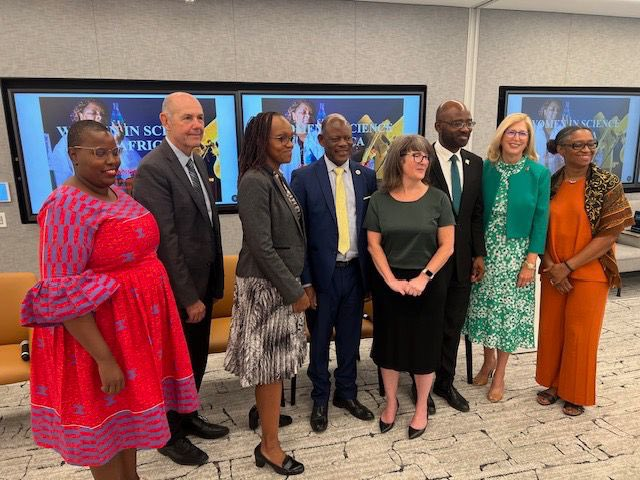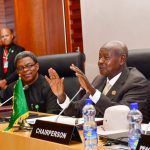The Vice Chancellor of Makerere University, Prof. Barnabas Nawangwe has urged universities, leaders, and researchers to take lead in the renaissance of Africa.
“We are the people to handle the renaissance. We must ensure that Africa leads.The renaissance of Africa should be inclusive. Women should not be left behind. Women should be part of leadership, higher education and development,” he said.
Prof. Nawangwe made the remarks at the United Nations General Assembly’s Science Summit in New York, USA in a Panel Discussion titled: AAP Dialogue Series “Advancing The Role of Women in Science for Sustainable Development in Africa: Lessons for Leadership of Higher Education Institutions.”
According to AAP, this specific panel discussion was very critical because the process of fundamental change in gender equity at African higher education institutions remains slow. Some of the significant challenges include deeply entrenched cultural norms, inadequate policy implementation, and resource constraints.
He implored participants from Africa and the world at large, to always remember the resounding question from the Beijing Convention, “Will Africa be left behind again?”
Aware of the aforementioned significant challenges, drawing from his lived experiences in Uganda and at Makerere University, and inspired by the conviction that Africans have the potential to bring about the desired change, Prof. Nawangwe stressed the power of gender inclusion and positive policies in the renaissance of Africa as well as transformation of livelihoods.
Citing statistics, studies and investigations conducted by reputable researchers, that proved that the ratio of women in leadership, science and development in African institutions was very low compared to that of men, Prof. Nawangwe rallied stakeholders to prioritize inclusion of women in education, development and all processes leading to shaping the future of the African continent.
Noting that one of the studies indicated that the enrolment of women in higher education across African countries was still below 15%, Prof. Nawangwe advocated for planned and deliberate gender inclusive strategies to be undertaken at the national, regional and continental levels to increase the percentage of women in higher education. He also highlighted statistics from the African Research Universities Alliance (ARUA) which indicated that women are still very low in this sector.
“We need to come up with strong policies about the inclusion of women in higher education and development,” he stressed.
The Vice Chancellor shared Makerere University’s experience, which provides hope to any institution that embraces positive policy to support gender inclusion. He pointed out that when Uganda attained independence (1962), 90% of the secondary schools in Uganda were for the boys and only two (2) girls’ schools taught sciences. In 1990, the enrolment of women in universities in Uganda was less than 15%. However, when the Government of Uganda, Parliament of Uganda and Makerere University embraced the affirmative action policy, more girls and women were empowered and supported to access education.
“The policy on affirmative action for girls who qualified to enter Makerere in 1990 has led to a rise in women enrollment to 53% presently. The policy on affirmative action for women in STEM at Makerere has seen a rise in enrollment from 30% to 45% in three years” Prof. Nawangwe reported.
Prof. Nawangwe stated that Makerere University has over the years increased its staff composition by gender with women members of staff constituting 35%. He explained that Makerere University remains committed to implementing gender inclusive policies. The Vice Chancellor added that the majority of respondents in a recent study, including both men and women, recommended that there should be more enrolment of women in higher education institutions.
He disclosed to the participants that when he instituted the Vice Chancellor’s Research Excellence Awards, the second-best researcher was a woman in Science-Professor Rhoda Wanyenze, who is the Dean, Makerere University School of Public Health.
In a keynote address, Dr. Teressa Woodruff-President Emerita of Michigan State University appealed to global leaders in Africa to ensure that women are visible.
“If women are not visible, that country will not advance. Make women visible through governance, economic empowerment, end violence against women, and ensure peace and stability,” she said.
Dr. Woodruff reiterated that universities are critical in the advancement of women in Africa. She explained that women are missing at the higher ranks in the Science disciplines. She noted the need to bridge that gap and also advocated for a value proposition to maintain women in the academy. “Value proposition focuses on the individual. Higher Education institutions should invest in the individual.”








